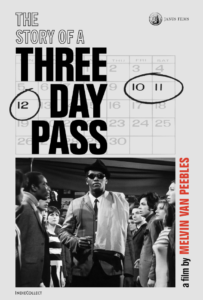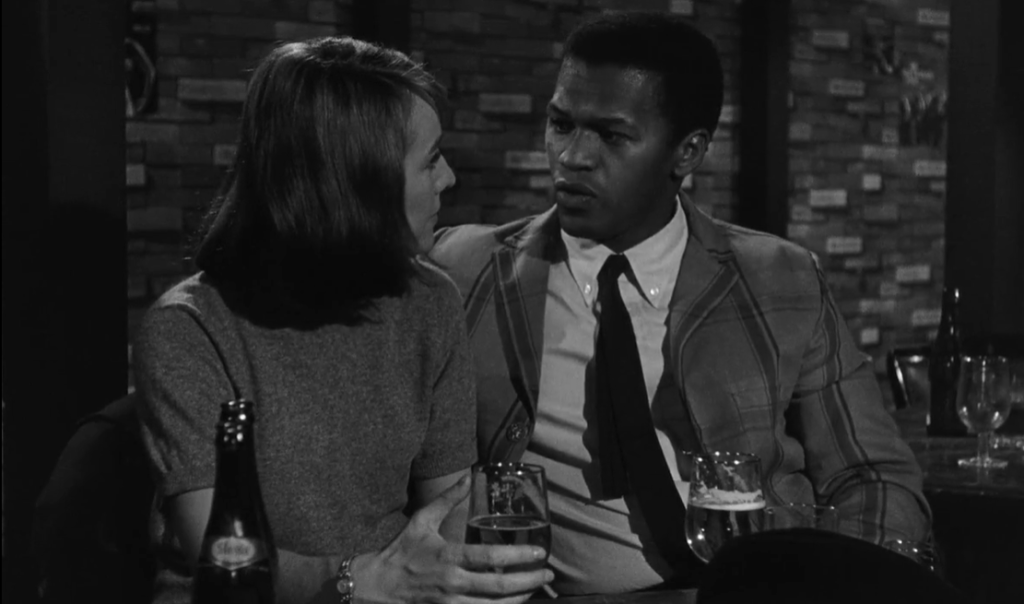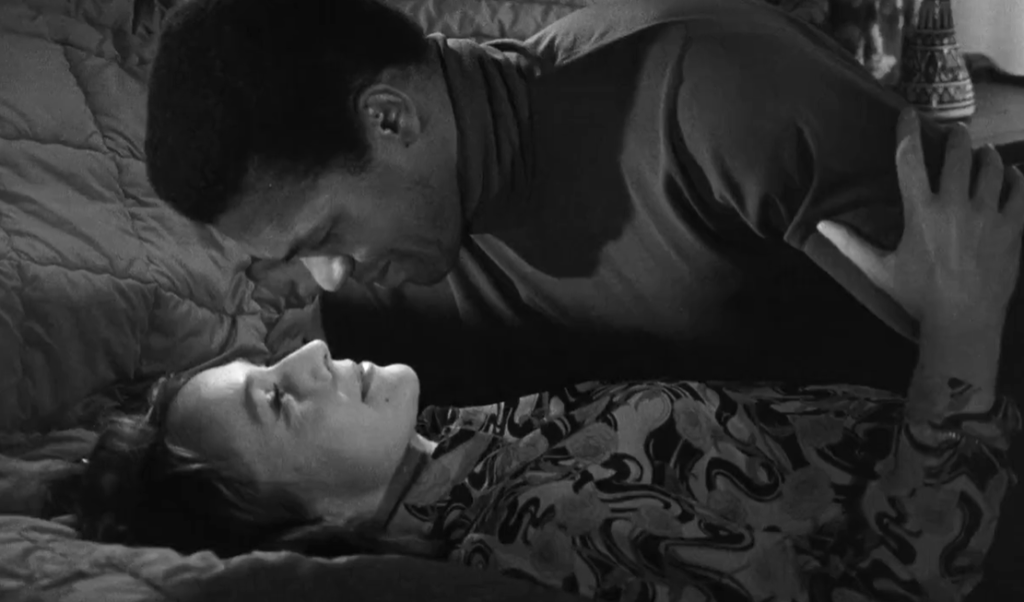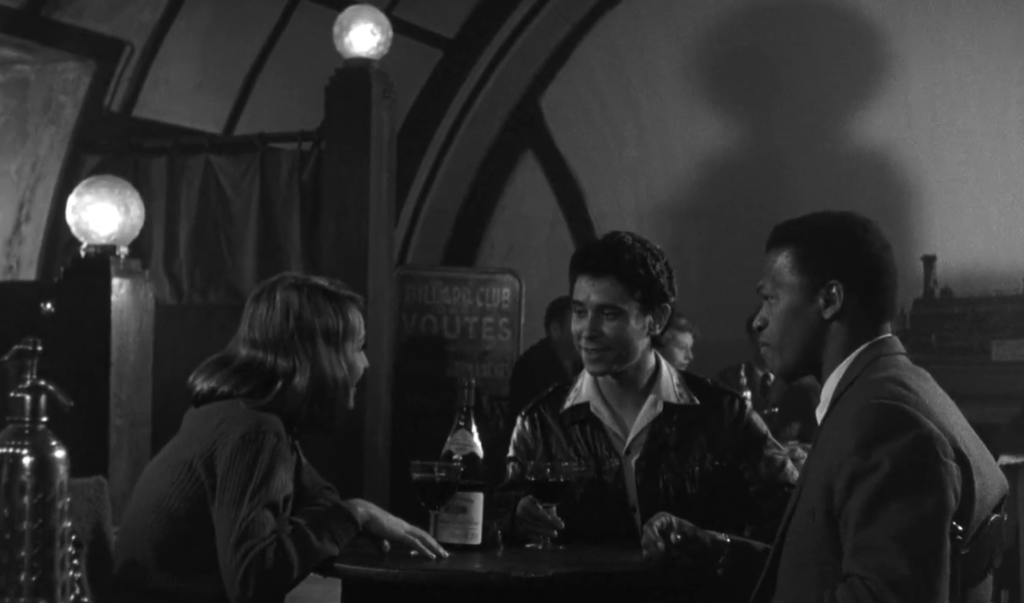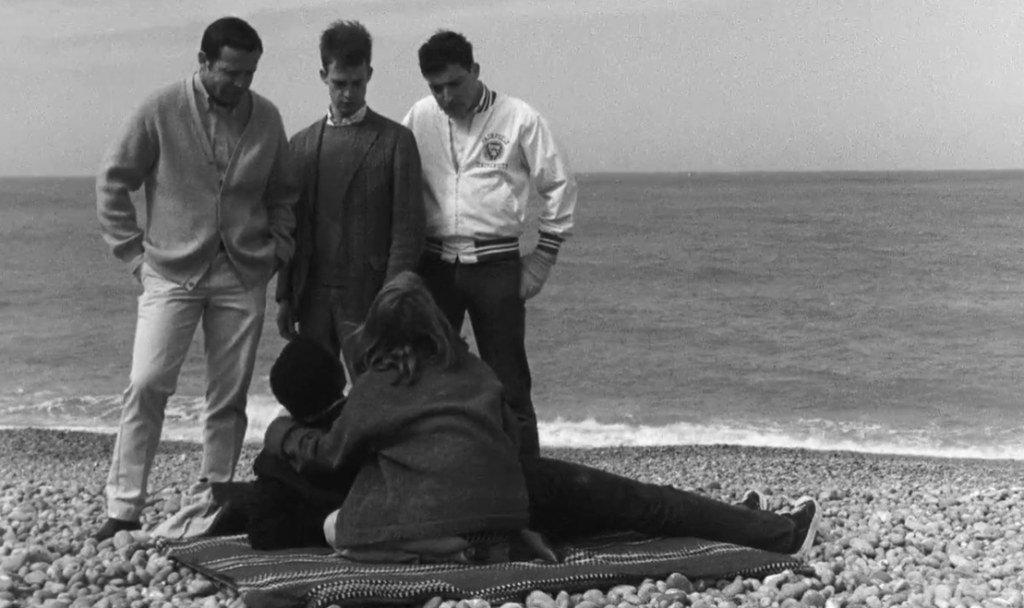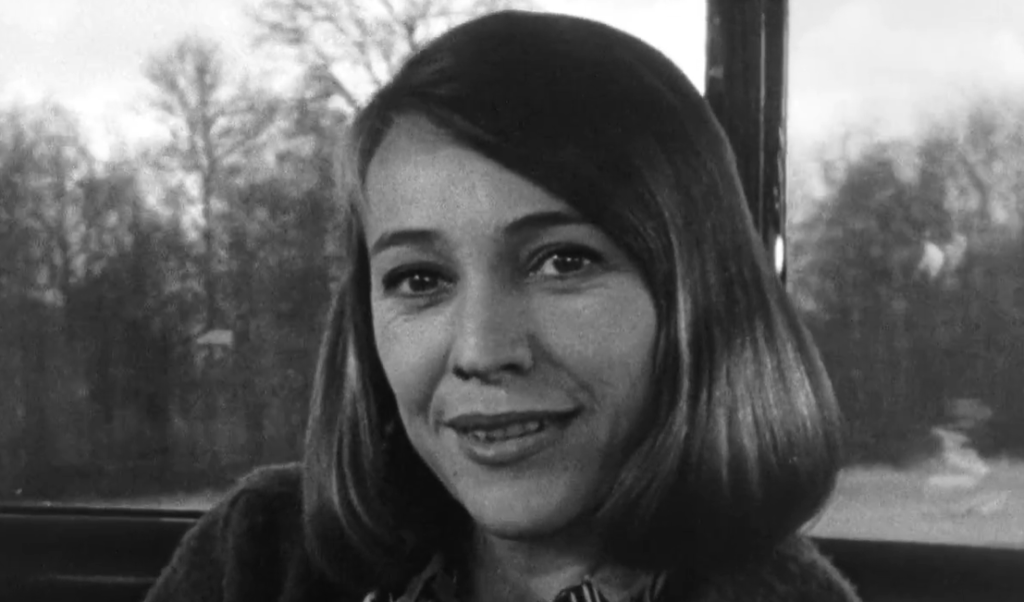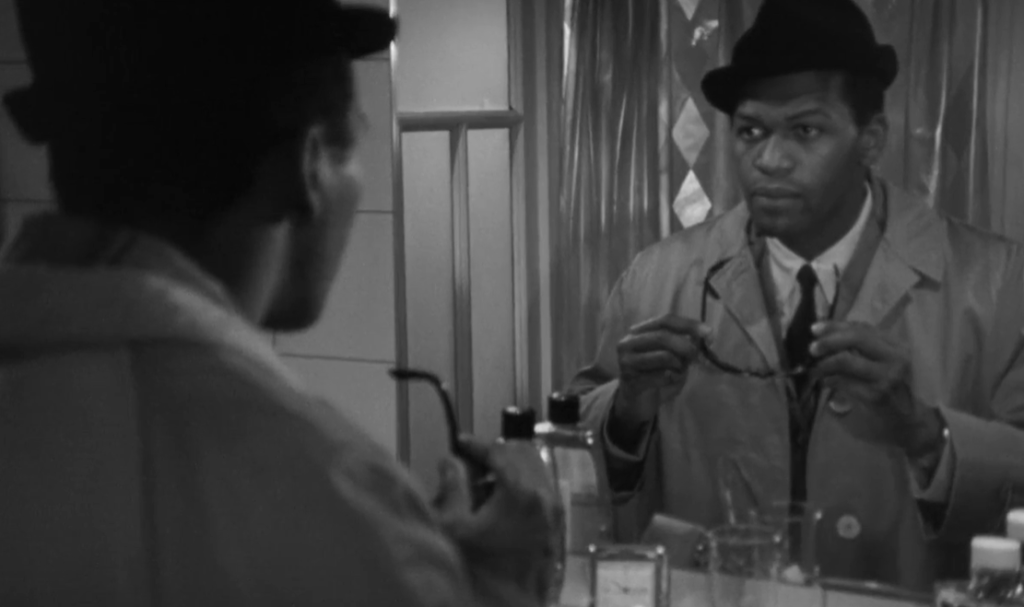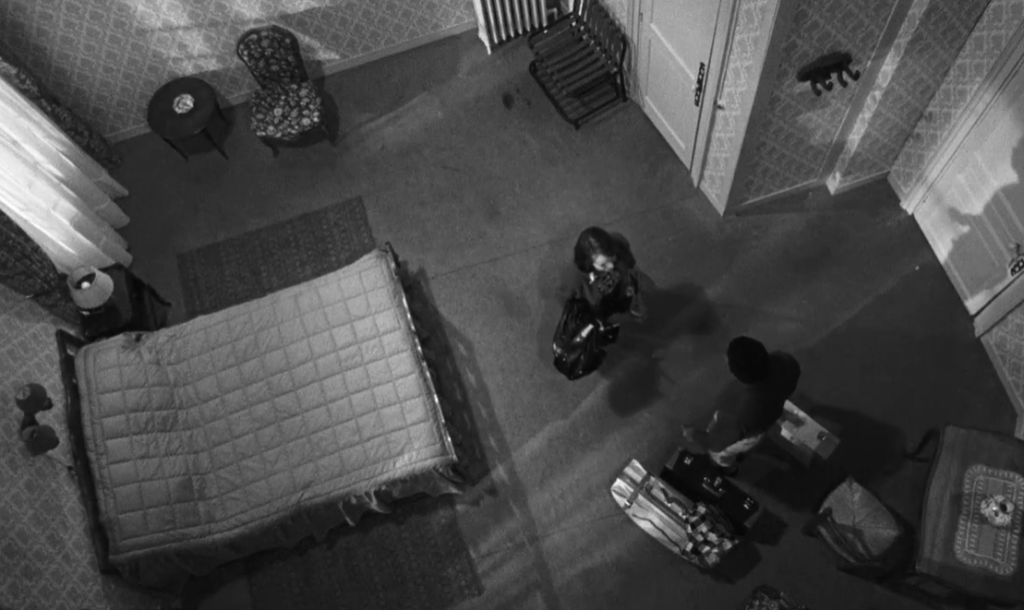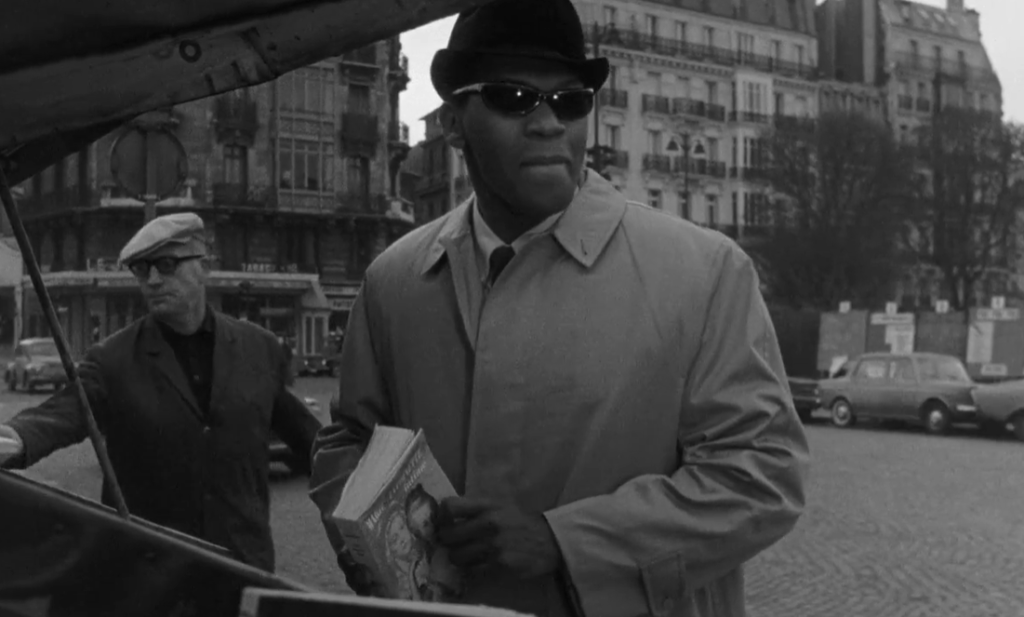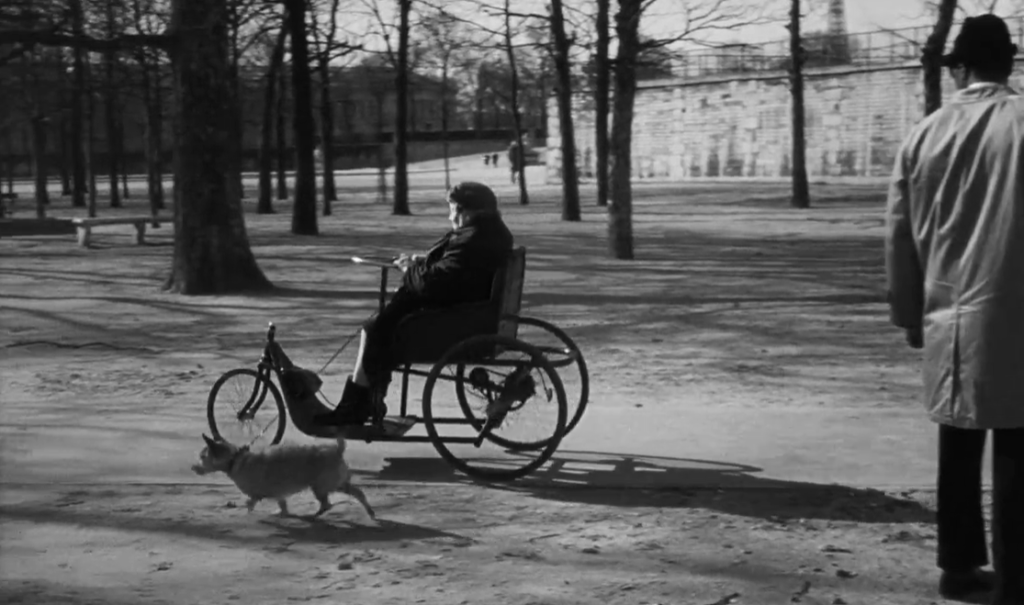Story of a Three-Day Pass, The (1967)
“I’m a person! I’m a person!”
|
Synopsis: |
|
Genres, Themes, Actors, and Directors:
Review: … who explains to him that she’s perceived as “fragile” at work and is thus able to take days off as needed. She’s game for spending the weekend with him, and the couple gradually come to care more deeply for one another. Van Peebles doesn’t shy away from addressing impacts of their race — as during brief fantasy sequences in their hotel room when they imagine what each other is offering them: … by Baird’s anger at being referred to as “Señor Negrito” by a Spanish singer in a cafe: … and the response of Baird’s fellow soldiers when he’s “caught” with Berger at the beach. (There goes his promotion. As Baird explains to Berger, a “good Negro” according to his captain is “a Negro you can trust… to be obedient, cheerful and frightened… too frightened to go out with a white girl.”) This film paved the way for Van Peebles to come to Hollywood and make Watermelon Man (1970), which would end up his only studio picture before he turned to making the independent Blaxploitation classic Sweet Sweetback’s Baadasssss Song (1971), both of which I’ll review shortly on this site. Note: Sadly, Berger died in a car crash after making this film, thus ending her short career. Notable Performances, Qualities, and Moments: Must See? Categories
Links: |
